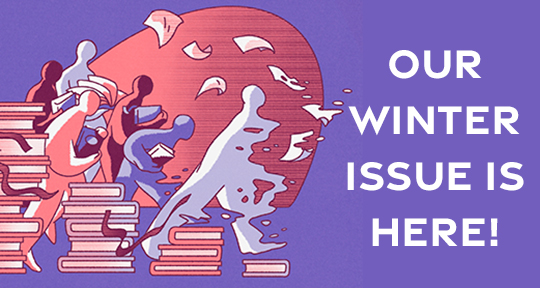This week, our editors-at-large report from Bulgaria and Egypt, taking us to book fairs and prize ceremonies. From the passing of a giant of Egyptian children’s literature to the arrival of literary stars in Bulgaria, read on to find out more!
Andriana Hamas, Editor-at-Large, Reporting from Bulgaria
The fiftieth anniversary edition of the Sofia International Book Fair graced the beginning of December. It took place over five days in the National Palace of Culture and saw the participation of approximately 160 publishing houses. Its motto was, quite fittingly, “We create stories. We create history.”
In an interview for the Nova News channel, Veselin Todorov, former longtime chairman of the Bulgarian Book Association revealed some intriguing details about the fair’s conception: “We began this tradition fifty-five years ago. However, we are celebrating our golden jubilee only now because on several occasions during socialist times, it was decided for the fair to be held every other year instead of every year. It all started back in 1968, in the Universiada Hall. Todor Zhivkov [former de facto leader of Bulgaria] inaugurated the event—a pompous and noisy affair. He even claimed it was one of the biggest such fairs in Eastern Europe.”
Literary critic Amelia Licheva also commented on the festival in her opening-day interview for the independent media platform Toest: “The boldest ambition of the team in charge of the cultural program (both Daria Karapetkova and I are part of it this year) is to attract real stars. Bulgaria is a small market with a bad image abroad and it is rather difficult, but we do not give up easily. Actually, our efforts finally paid off. The Bulgarian public will be able to meet with Franco Moretti, Leïla Slimani, Dacia Maraini, Stefan Hertmans, Ia Genberg, and Agustina Bazterrica. We are hoping to cultivate a taste in the audience for the issues of global importance and get more people to attend these discussions. This would mean a success not only for the festival but also for the role of literature in the present day.”
What better way to end 2023 than with hope for the literary future of 2024?
Ibrahim Fawzy, Editor-at-Large, reporting from Egypt READ MORE…




